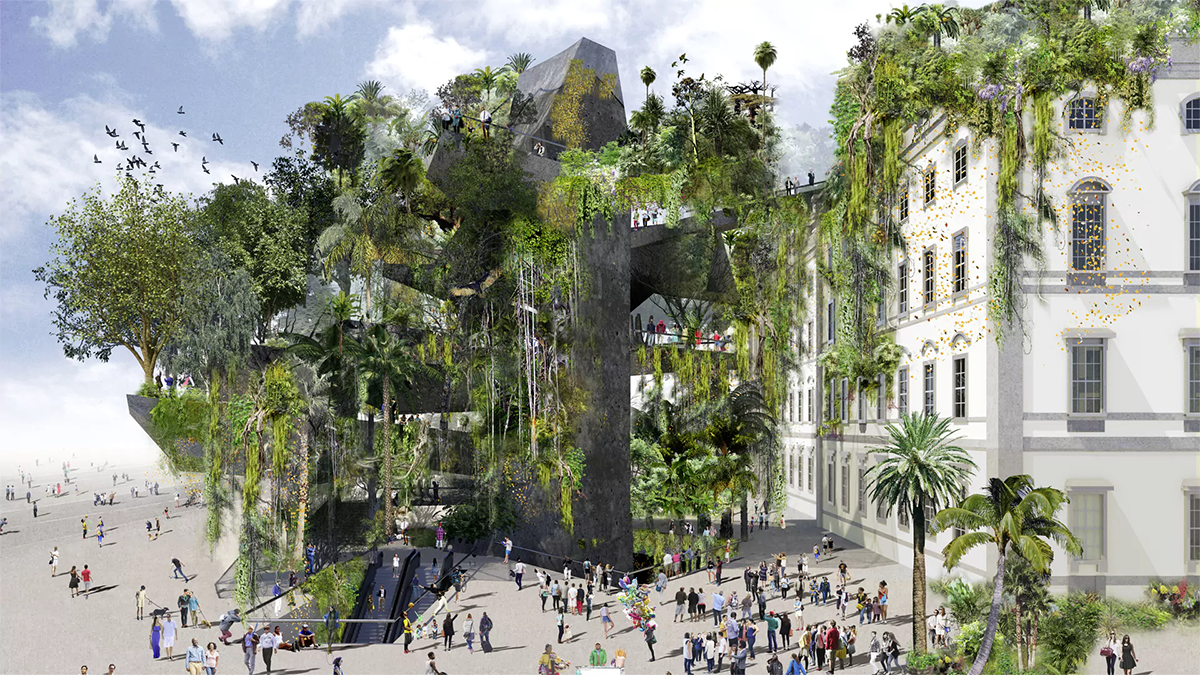It must be a very special event when Ada Colau, former city activist and since 2015 Mayor of Barcelona, and Sadiq Aman Khan, London’s first Muslim city head, travel to Berlin without being invited by the Governing Mayor.
Nevertheless, both will be in the city on Thursday – to open the second Make City Festival with building senator Katrin Lompscher and other guests.
The theme of the 18-day event is “City remixed”.
Publication, Uwe Rada @ TAZ, Berlin, 11 juni 2018
It must be a very special event when Ada Colau, former city activist and since 2015 Mayor of Barcelona, and Sadiq Aman Khan, London’s first Muslim city head, travel to Berlin without being invited by the Governing Mayor. Nevertheless, both will be in town on Thursday – and will open the second Make City Festival with building senator Katrin Lompscher and other guests. The theme of the 18-day event is “City Remixed”.
The motto clears up with two cherished habits of architects. The old model of the “mixed city” has long been gentrified in Berlin. You live with yourself again, the wealthy do not even need gated communities, because they have long since conquered entire neighborhoods. The rest are fighting for their niches, hoping for (political) wonders.
But a new mix is possible, the creators of Make City are convinced and spread a spirit of optimism, which is amazing considering the rent explosion. “Berlin is being remixed everywhere, the scenes are changing everywhere, the actors are changing,” says Francesca Ferguson, who has already set up the first Make City Festival three years ago as Artistic Director. Berlin is the city of “civil capitalism” for Ferguson.
Alternative project developers, charitable builders, new cooperation with the public sector, participation, good money: these are the ingredients that make up this civil capitalism for Ferguson – and for which the architecture festival serves. As a “platform for developers, planners, builders, administration, politics, cooperatives, cultural institutions,” as Ferguson calls it.
Nanni Grau shares this optimism. “The first festival has left its mark,” says the architect of the Hütten & Paläste offices. “All that we and others do suddenly became visible”. Many networks were created at that time, which can be used since then. “For many years we have experienced a conflict. Now there is a togetherness. ”
Of course, this also has to do with the construction boom, which not only gives the established representatives of the guild thick order books, but also young architects. They also want to benefit from the experience of the older generation. That’s why Nanni Grau calls Make City a “huge university”. Even Grau’s office is now called on to seek experimental solutions for the construction of so-called difficult properties.
Often this is about the ground floors, says Grau. She calls them the “interfaces of the building to the city”. For a long time, investors have not built any commercial space because the buyers of condominiums do not want to be disturbed. But housing associations are having a hard time with businesses and shops. Many architects, meanwhile, refuse to build ground floor apartments. They want more mixture of living, working and shopping again. “Such attitudes are just developing”, Grau is convinced.
In the program of Make City, the ground floor, but also commercial space take up a lot of space. One example is the Metropolis House on the former flower wholesale market, which wants to activate the entire quarter in southern Friedrichstadt via its ground floor zone. The topic of trade is approaching the house, especially temporarily. The areas are allocated only for a limited time.
Make City also receives support from the Berlin Chamber of Architects. President Christine Edmaier emphasizes that in Berlin no pure residential areas should be built more. “We need urban areas of a new type,” says Edmaier. Of course, commercial areas would have to be on the ground floor. The festival itself is the perfect complement to the Day of Architecture, organized by the Chamber. “Berlin has a film and theater festival.” With Make City, a festival for architecture and urban development has now been added.
For Francesca Ferguson, Make City is not just about building, but about the big picture. Above all, the circular economy is important to her. How can building materials be recycled? How can food production be sustainably organized? “The food industry is an important urban development policy issue,” Ferguson is convinced and refers to the “Urban Food Policy Pact”, which has signed more than 160 major cities in Milan.
In Berlin, this topic should have a place especially in the wholesale market on the Beusselstraße. Markthalle Nine wants to re-create the “belly of the city”, emphasizes market hall operator Florian Niedermeier: “We want to bring food production and the people who work every day for our food back to the city.” Niedermeier has the Senate already submitted the concept wholesale market 9.0.
No more and no less than the discussion about a new city contract has curator Francesca Ferguson in mind. Between the new actors of building, participation, the decider. At the same time she warns against too high expectations. “We do not give answers here, but the opportunity to exchange views.” For example, on new financing models in which private and public actors work together. Ferguson said that the Eckwerk of the Holzmarktgenossenschaft is about to go down, of course it is a setback.
related PROJECTS
related PRESS
